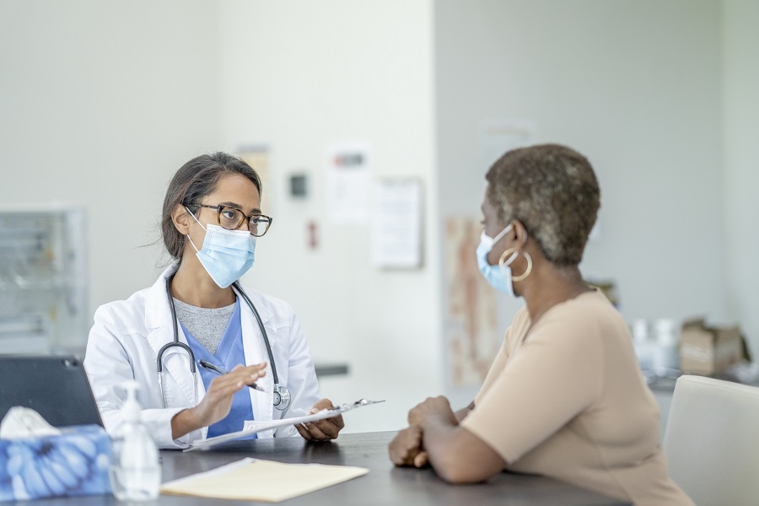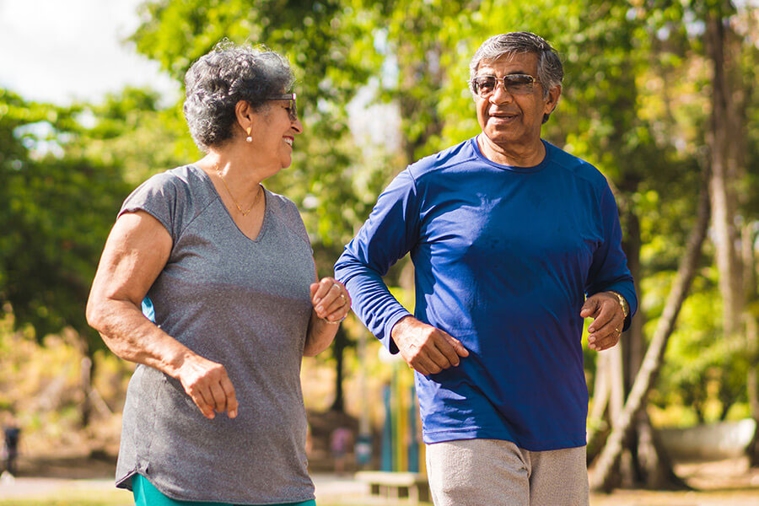
COVID-19, colonoscopies and preventive care
Colorectal cancer is the second leading cause of cancer death in the United States. Every year, 50,000 deaths occur due to colon cancer—and in most cases, these deaths could have been preventable if cancer was caught early. Getting a regular screening colonoscopy is a crucial part of your health. If a colonoscopy does reveal polyps, removing them increases your cancer survival chances by 53%.
Yet, in the last year, many people have gotten behind on their usual screening schedule or delayed visiting their healthcare provider. When it comes to healthcare during the COVID pandemic, is it safe to go to the office? And what are your at-home options?
At-home screening options
People who have a low to average risk of colon cancer may choose at-home screenings. Some people may have chosen these options due to the pandemic, or others may have hesitancy about a colonoscopy.
One of the most popular options is Cologuard®, a test to evaluate a stool sample. “Cologuard is a combination test that looks for DNA abnormalities and biochemically tests for blood,” Don Mansell, MD, gastroenterologist with Adventist Health Lodi explains. “If it comes back positive, it has a high predictive value for advanced colon polyps or colon cancer.”
The one downside, Dr. Mansell notes, is that if a Cologuard test does come back positive, the follow-up colonoscopy is a diagnostic test instead of a screening. However, if the test is negative, you only need to repeat a Cologuard test every three years.
One new option that will be available soon is a blood test called FirstSight. “It’s not the first blood test we’ve had for colon cancer screening, but it will be our most accurate one,” Dr. Mansell explains. FirstSight involves a blood draw in a laboratory setting. While the test is not an at-home option, it is a noninvasive test with a high degree of accuracy in detecting asymptomatic polyps and colon cancer.
Can everyone do at-home screening?
People who have risk factors for colon cancer should not rely on at-home screenings. If you have a family history of colon cancer, a history of polyps, or Lynch syndrome (hereditary non-polyposis colorectal cancer), you need to see your healthcare provider for a colonoscopy. If any of your screenings have ever detected polyps, at-home screenings are no longer an option for you.
Colon cancer prevention
In addition to regular screenings, there are some lifestyle factors that can decrease colon cancer risk. Smoking and excess alcohol consumption are two such risk factors. Research has shown that getting less than six hours of sleep per night is also linked with increased risk of colon cancer. As with many health conditions, achieving and maintaining a healthy weight and exercising regularly are both important lifestyle changes to make. Dr. Mansell notes that people who follow a vegan diet tend to have the lowest risk for colon cancer, with diets high in animal protein increasing risk.
It’s also important to understand the potential symptoms of colon cancer. Visit your healthcare provider right away if you experience:
- Changes in bowel habits
- Blood in your stool
- Diarrhea
- Abdominal pian
- Unexplained weight loss
How we’re keeping you safe during COVID-19
When you do need to visit your doctor, there are abundant measures in place to keep you safe. Dr. Mansell notes that Adventist Health providers are doing as many visits as possible through telehealth options, such as a phone or video call.
“We’ve reduced the number of people in the waiting room or have people wait in their cars,” he explains. Employees all wear face masks and high employee vaccination rates have reduced the risk of transmission even further. “And, of course, we’re always practicing our hand hygiene.”
If you need a colon cancer screening or other healthcare services, find a provider near you.


